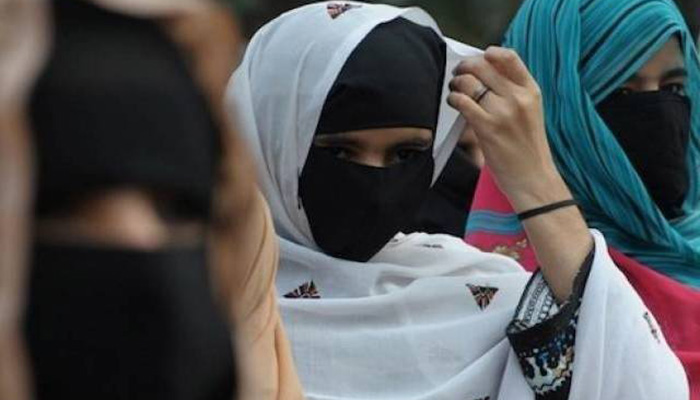What does the FATA-KP merger mean for women?
The true mainstreaming of the impoverished border areas will be possible only if the elected government has an adequate women presence
May 28, 2018

Merging the erstwhile Federally Administered Tribal Areas (FATA) with the neighbouring province of Khyber Pakhtunkhwa is a huge step for the rights of over five million people, living on the troubled and under-developed peripheral areas of Pakistan.
While the integration makes no distinctions, yet women living on the periphery, who are to this day maimed, displaced and brutally killed with impunity should be given special preference moving forward. Ironically, the state and many other humanitarian and advocacy groups (feminists’ networks, international amnesty and human rights commissions) ignored women living in the border areas. Therefore, it is important that extra-cautious measures be taken to protect their rights and ensure the presence of women in the decision-making process.
For a long time now, the Pakhtun border has been devoid of legal structures. Therefore, a council of village elders (Jirga) in the light of customary practices (Riwaj) deal with most of the issues related to women as personal. The problem here is that the traditional structure in the tribal areas is authoritarian and patriarchal. It is accepting of violence against women as a way to assert dominance. The until-now border “badlands” were also considered a militarized space due to international and regional conflicts. Combine that with the cultural construct, unjust patriarchal judicial system and the Frontier Crimes Regulations (FCR), all of which pushed women rights down the pecking order.
In such state of affairs, issues, regarding woman, stayed personal and were never allowed to be recorded in the public, which allowed violation of woman’s rights. A woman attending an educational institute, or working in an environment where she freely interacts with men have been considered dishonourable. Similarly, reporting rape is considered ‘shameful’ for the family; reporting domestic violence is tantamount to disloyalty; demanding or talking about rights is too liberated, westernized and a grave sin.
Thus, with the merger, there is a new hope of transformation from the old, patriarchal and inhuman space for women to a more mainstreamed one.
One welcome step is the extension of the judiciary set up to FATA, which would help and correct the inhuman and un-Islamic practices related to women. Article 247(7) of the Constitution excluded the tribal areas from the jurisdiction of the apex court (unless the parliament allows it), hence leaving the tribal people at the mercy of the president, governor Khyber Pakhtunkhwa and political agents/sarkari Jirga. With the amendment of the Article 247(7), Pakistani superior courts will be able to protect the fundamental rights of the people such as the right to life, property, liberty, security and fair trial. It will also provide a forum to many aggrieved women against evil traditional practice such as bride-money (walver/rasnama), exchanging woman for murder (badala/weenay), honour killing (ghirat marg), child marriages and forced marriages through masculine roar (ghag). Although, there is a serious apprehension that along with the judiciary extension, the government is trying to retain the old structures with the Riwaj Act, but the good news is that it can be challenged, as it is prescribed in the constitution: “laws inconsistent with or in derogation (exemption) of fundamental rights to be void.” And all such traditional practices related to the women are against human rights and fundamental rights.
The true mainstreaming and integration of the impoverished border areas will be possible only if elected provincial and local government have an adequate women presence. Such women inclusive systems will be able to address the problems of services delivery (that is mostly a woman’s responsibility in the border areas) such as access to clean potable water, sewerage disposal and health and education. In many areas, women fetch water, collect wood, dispose of the human and animal waste and take their children to hospitals and schools.
Let’s hope and pray that the 31 amendment changes the fate of women living near the volatile and impoverished border of Pakistan. Let’s also hope to see more women emerge from these areas as leaders.
Naseer is a resident of the Federally Administered Tribal Areas (FATA). She is a faculty member in the political science department of the University of Peshawar.
Note: The views expressed are those of the author, and do not necessarily reflect the official policy or position of Geo News or the Jang Group.











